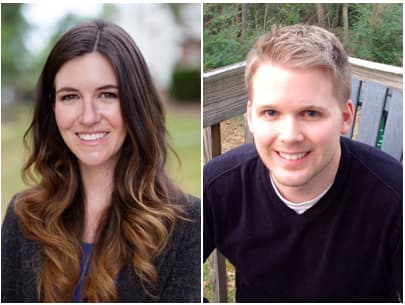
Public understanding of the counseling profession lacks clarity in places, but many perceptions also are encouraging, according to new research co-authored by UNC Charlotte counseling scholars.
Bailey MacLeod, an adjunct professor in the College of Education, and counseling doctoral students Jim McMullen and Emily Teague-Palmieri, in conjunction with a colleague from the Wake Forest School of Medicine, recently released the new study, which canvassed 300 participants in hopes of better understanding what the public knows about professional counselors.
According to the authors, professional counselors often grapple with how to establish a distinguished identity in the mental health profession.
“Jim and I would often discuss ways to strengthen professional identity and how we can better advocate for the profession,” MacLeod said. “However, in order to advocate to the public, we needed to know what the public knew about the counseling profession.”
This research is significant because the public’s lack of understanding about the differences among mental health professions can impact them making informed decisions regarding their mental health needs.
“This can present a challenge for those seeking mental health services and [they] feel responsible for discerning those differences on their own,” said McMullen, who also is an associate professor of school counseling at the University of Wisconsin-Stout.
The 45 question “Helping Professionals Questionnaire” (HPQ) concentrated on four major themes: education, task, focus and identity confusion.
Results indicate some confusion about degree requirements, practice areas and services provided by various helping professions.
“I believe a psychologist is someone who has a specific degree to practice psychology, while a counselor can be someone who is trained to help but may not have a specific degree,” one participant said.
Participants were more likely to say that professional counselors held a license or credential versus a degree, compared to other professions.
The HPQ also revealed what the public believes professional counselors focus on. Almost half of the participants (49 percent) said professional counselors focus on helping people with problems such as coping, stress and situational issues, while psychologists specifically work with more severe client issues (23 percent) and mental health (39 percent). Four percent of respondents felt that professional counselors focus on personal growth and well-being. One participant said a professional counselor is some who “helps your mental health, family, career and anything that is bothering you.”
Notably, 12 percent of respondents said they have negative stigmas associated with seeking and receiving counseling services. Although respondents did say that the term counselor is less stigmatizing than psychologist or psychiatrist.
“I think the terminology we use, such as counselor and counseling, have the connotation of dealing with less stigmatizing issues, such as coping with life stress and promoting wellness,” said MacLeod. “The downside to this perception is the assumption that professional counselors do not have the training or ability to work with more severe issues or use evidenced-based techniques and theories. In reality, professional counselors have a variety of experiences and training that can prepare them for working with diverse populations and issues as long as they stay within the legal and ethical scope of practice.”
Professional counseling is a unique, interdisciplinary profession that incorporates elements of psychology and education and is based in counseling research and practices.
“There are a lot of similarities between the different helping professions, which cause confusion and can lead to inaccurate assumptions,” said MacLeod. “Also, counseling is a relatively new profession compared to clinical psychology, psychiatry, and social work, so people may not be aware that it is a separate profession.”
The American Counseling Association has identified advocacy as one of the major issues the counseling profession needs to address. Licensed professional counselors have struggled to become recognized at the national level for their ability to provide access and support consistently and affordably to the public
“In the immediate sense, I hope that this study will spark continued research around public perception of counselor identity, said McMullen. “In the long-term, I hope is that the other helping fields can potentially adapt our survey so that there can be a greater consensus on how we are similar and different to better serve the public
Laura Veach of the Department of Surgery and Psychiatry at Wake Forest School of Medicine co-authored the study.